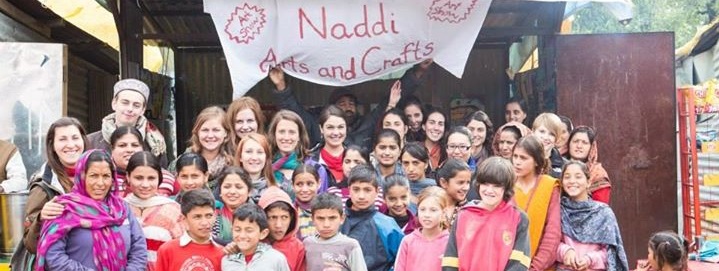 |
| School kids learn about the importance of a clean environment |
Changing age-old habits is not going to happen in the short-term. We recognise that we won't be pulling up any trees overnight, but with the success of these projects, coupled with a great visual presence in the village, this may take a while, but we will change peoples attitudes over time!
With the idea of 'legacy' in mind, for the long-term success of this effort, the S.W.A.S.H. team decided to sensitize the minds of the future decision makers - the children of Janauri. We are currently working with four schools, three in Janauri - the Girls Middle School, the Mixed Middle School and the Modern Public School - and one in Paro (neighbouring village) - the SDM School. The general idea is to give presentations and workshops at these schools, to raise awareness, so students learn about local and global environmental problems. With a problem, there needs to be an remedy, so we discuss and propose solutions with the children and teachers too. Together we work to identify how the locals can strive towards achieving the goal of a clean environment to live within!
There have been presentations in three of the schools with the Modern Public School already scheduled for July. In the future we are looking forward to create one presentation/workshop per month and present them at the schools, one school a week. This series of events will start in July as the kids are on holiday throughout June.
 |
| The plinth - just before the Janauri team address their masses!! |
The children have been enjoying our presentations and showed great interest. With games like the 'trash game', where the children have to guess what kind of waste is shown to them, and the 'good/bad plays', where we act out different good and bad habits concerning waste. We are trying to make learning about the environment as fun and exciting as possible. It is a serious health issue, which is sometimes difficult to raise the children's interest towards the topic. However, by making the presentations interactive and exciting, we seem to be capturing their attention!
We have to keep our presentations very basic and simple so the translation into Hindi/Punjabi is easier for the teachers. Having experienced good translation so far and having increased the general knowledge of the students about environment, we will try to go into more detail and address more complicated topics in the future. So far so good!! :)












